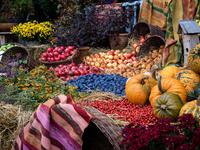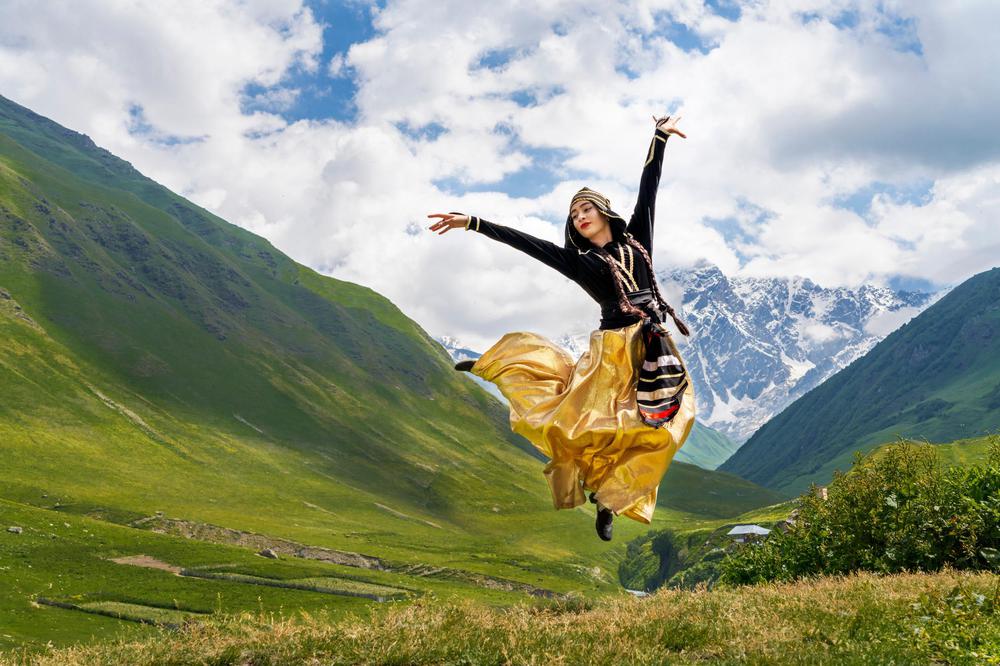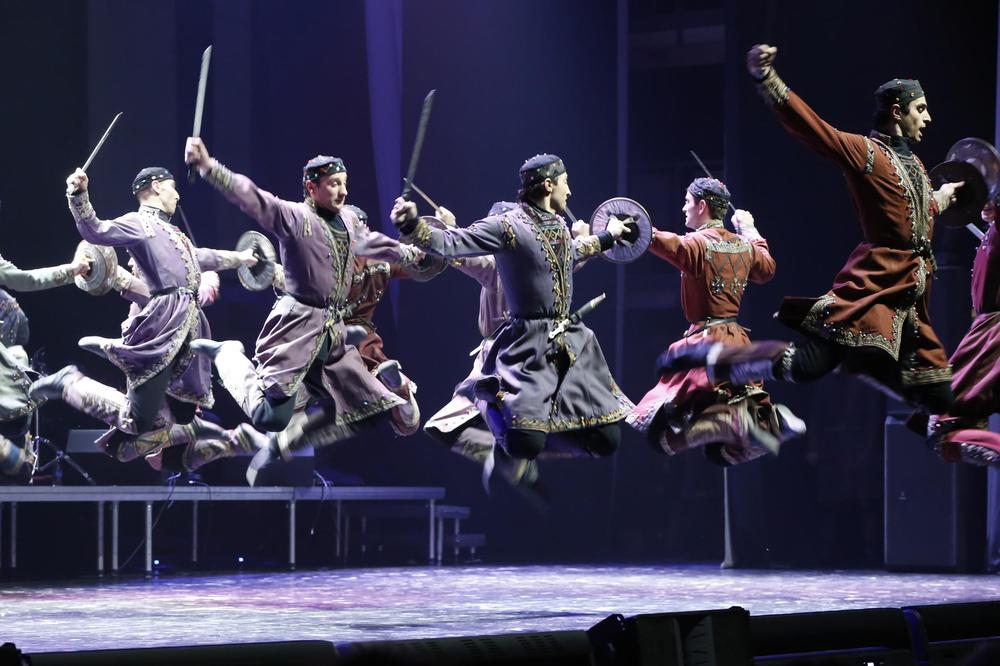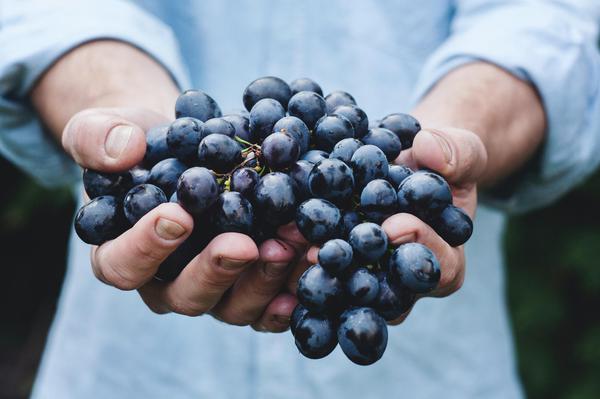Introduction
Nestled at the crossroads of Eastern Europe and Western Asia, Georgia is a captivating country that boasts a rich cultural tapestry woven through the millennia. Straddling the Caucasus Mountains and the Black Sea coast, this diverse land is steeped in a history that stretches back to ancient times, blending the influences of numerous civilizations, including the Greeks, Persians, Romans, and Ottomans. Today, Georgia is a vibrant nation that retains its unique character and identity, thanks in large part to its festivals and events which play a crucial role in preserving and promoting the country's traditions and customs. These celebrations, ranging from wine harvests and religious festivities to cultural and music festivals, not only serve as a living testament to Georgia's remarkable heritage but also offer a window into the heart and soul of its people. The purpose of this article is to delve into the myriad of Georgian festivals and events, providing a comprehensive guide for those seeking to immerse themselves in the colorful and lively world of Georgian culture, while also highlighting the significance of these annual happenings in the lives of the Georgian people.
Georgian Wine and Winemaking Festivals
Georgia's rich winemaking history dates back over 8,000 years, making it one of the oldest wine-producing regions in the world. The country's unique winemaking techniques, which involve fermenting grapes in large, egg-shaped clay vessels called qvevri, have been passed down through generations and are recognized by UNESCO as an Intangible Cultural Heritage. Given this deep-rooted tradition, it comes as no surprise that Georgian wine festivals are joyous occasions that showcase the nation's pride in its viticultural legacy.
Rtveli (Grape Harvest Festival)
Rtveli is a time-honored celebration that takes place in Georgia's main wine regions, such as Kakheti and Imereti, typically between late September and early October. Marking the end of the grape harvest, this festival is an opportunity for families and friends to come together, engage in grape-picking activities, and partake in the winemaking process. As a symbol of gratitude for a bountiful harvest, participants also pay tribute to the ancient deities of fertility and wine. Rtveli is more than just a harvest festival; it's a communal event that unites people through feasting, singing, and dancing, with traditional Georgian dishes, such as khachapuri and shashlik, being served alongside copious amounts of wine.
Tbilisi New Wine Festival
Held annually in the Georgian capital, Tbilisi, the New Wine Festival offers a platform for both large-scale wineries and small family-owned vineyards to showcase their latest creations. Usually taking place in May, the event brings together wine enthusiasts, tourists, and locals alike, allowing them to taste and appreciate a wide variety of wines hailing from all corners of the country. Apart from indulging in the diverse selection of wines, attendees can also enjoy traditional Georgian music and dance performances, as well as indulge in mouthwatering local cuisine. The Tbilisi New Wine Festival is not only a tribute to Georgia's winemaking heritage but also an ode to innovation and the bright future of the country's wine industry.
Religious Festivities
As an Orthodox Christian country, Georgia takes great pride in its religious heritage, which is deeply intertwined with the nation's history and culture. Consequently, religious festivals and events play an essential role in the lives of the Georgian people, serving as an opportunity to come together, strengthen their faith, and uphold age-old traditions.
Alilo (Christmas Procession)
Celebrated on January 7th, Georgian Christmas, known as Shoba, features a vibrant and colorful procession called Alilo. This event is deeply rooted in the Georgian Orthodox Church's customs, with thousands of participants, including priests, choir members, and believers, marching through the streets of Tbilisi and other cities across the country. Dressed in traditional garments, the procession participants sing carols and hymns, while children carry handmade ornaments and Nativity scene figurines. The Alilo procession is not only a religious observance but also a display of Georgia's spirit of unity and compassion, as donations and gifts are collected during the march to be distributed among orphanages, elderly homes, and the less fortunate.
Tbilisi Easter Market
The Tbilisi Easter Market is an annual event that takes place during the week leading up to Orthodox Easter Sunday. This lively market is held in various locations throughout the city, such as the Rose Revolution Square and the Rike Park, and attracts thousands of visitors. The market showcases a myriad of traditional Easter treats and delicacies, such as the famous Georgian Easter bread, called paska, as well as colorful, hand-painted eggs that symbolize new life and rebirth. In addition to food, the market also features a wide array of handmade arts and crafts, including pottery, wood carvings, and textiles. The Tbilisi Easter Market is a vibrant celebration of Georgian Orthodox customs and an excellent opportunity for locals and tourists alike to immerse themselves in the country's rich cultural heritage.
Cultural Festivals
Georgian culture is a treasure trove of unique traditions, art, and history that has been shaped and enriched by the diverse influences of the many civilizations that have inhabited the region. Cultural festivals in Georgia aim to celebrate this rich heritage, offering a platform for artistic expression, promoting national identity, and fostering a sense of unity among its people.
Tbilisoba (Tbilisi City Festival)
Held annually during the first weekend of October, Tbilisoba is a vibrant and lively event that commemorates the founding of Tbilisi, Georgia's capital city, by King Vakhtang Gorgasali in the 5th century. The festival brings the city to life with an array of activities, including open-air concerts, traditional dance performances, and theatrical shows that showcase the city's artistic and cultural prowess. One of the highlights of Tbilisoba is the parade of Georgian folk ensembles adorned in colorful, traditional costumes. The festivities also feature various exhibitions, such as art and crafts displays, as well as culinary events where visitors can sample delectable Georgian cuisine. Tbilisoba is not only a celebration of Tbilisi's past and present but also a testament to the city's resilience, diversity, and vibrant spirit.
Art-Gene Festival
Established in 2004, the Art-Gene Festival is a week-long event held annually in July, aiming to preserve and promote Georgian folk art, music, and traditions. The festival takes place at the open-air ethnographic museum in Tbilisi and features artists, musicians, and craftsmen from all regions of Georgia. Visitors have the opportunity to witness authentic folk performances, engage in traditional crafts workshops, and learn about the country's rich cultural heritage through various exhibits. In addition, the Art-Gene Festival serves as a platform for emerging contemporary Georgian artists to showcase their talents, fostering creativity and innovation in the country's artistic scene. The festival is a unique fusion of the old and the new, offering a glimpse into Georgia's diverse cultural landscape and its ever-evolving artistic expression.
Music and Dance Festivals
Music and dance are integral aspects of Georgian culture, playing a vital role in the country's self-expression, storytelling, and preservation of its heritage. From traditional polyphonic singing and energetic folk dances to contemporary tunes, Georgia's music and dance festivals showcase the nation's incredible artistic talent and diversity.
Tbilisi Open Air (Music Festival)
Established in 2009, Tbilisi Open Air is the largest annual international music festival in the Caucasus region. The event usually takes place in June or July and spans three days, featuring a lineup of both local and international artists representing a wide array of genres, including rock, electronic, indie, and alternative music. The festival is held at various venues across Tbilisi, such as Lisi Wonderland and Tbilisi Sports Palace, attracting thousands of music enthusiasts each year. Tbilisi Open Air is not only a celebration of contemporary music but also a platform for emerging Georgian artists to gain exposure, encouraging the growth and development of the country's modern music scene.
Sukhishvili Georgian National Ballet
Founded in 1945 by Iliko Sukhishvili and Nino Ramishvili, the Sukhishvili Georgian National Ballet is a world-renowned dance ensemble that has captivated audiences globally with its powerful and dynamic performances. Combining traditional Georgian folk dances with classical ballet techniques, the company's repertoire showcases the country's rich dance heritage and the incredible athleticism and grace of its performers. The Sukhishvili Georgian National Ballet holds regular performances in Tbilisi and frequently embarks on international tours, earning acclaim and admiration from audiences worldwide. Attending one of their breathtaking shows is a must for anyone looking to immerse themselves in the beauty and intensity of Georgian dance, offering an unforgettable cultural experience.
Lesser-Known Festivals and Events
While Georgia's major festivals and events often take center stage, the country is also home to numerous lesser-known celebrations that provide an equally rich and immersive cultural experience. These events, though not as widely publicized, offer unique insights into Georgia's local traditions and customs, providing visitors with an authentic and intimate glimpse into the nation's vibrant heritage.
Kvirikoba (Feast of St. Kvirike)
Kvirikoba is an annual celebration held on July 28th in the Svaneti region of Georgia, honoring St. Kvirike, the patron saint of the region. The festival takes place in the village of Kala, where locals and visitors gather to attend a religious service at the ancient St. Kvirike Church. Following the service, attendees engage in feasting, singing, and dancing, creating a lively atmosphere that embodies the spirit of the Svaneti people. Kvirikoba provides a unique opportunity to experience the rich cultural traditions and hospitality of this remote and picturesque region.
Berikaoba (Georgian Masquerade)
Berikaoba is a traditional Georgian masquerade festival with roots in ancient fertility rites and pre-Christian rituals. The event typically occurs in late winter or early spring and features participants dressed in elaborate costumes and masks, representing various characters from Georgian folklore and mythology. Accompanied by music and dancing, the performers engage in theatrical skits, satirical performances, and improvised comedy routines, providing a highly entertaining and captivating spectacle. Berikaoba is not only a display of Georgia's rich folklore and artistic traditions but also a celebration of the arrival of spring and the renewal of life.
Lomisoba (Mountain Festival)
Lomisoba is an annual mountain festival held in early June, celebrating the local deity Lomi, associated with the protection of livestock and the well-being of the community. The event takes place in the highland areas of Georgia, particularly in the Mtiuleti and Khevsureti regions, and involves a pilgrimage to the Lomisi Monastery, perched high up in the mountains. Participants engage in feasting, singing, and dancing, as well as partaking in traditional sports and games. Lomisoba is an opportunity to witness the unique customs of Georgia's mountain communities and appreciate the stunning beauty of the country's alpine landscapes.
Tushetian Cheese Festival
Held annually in August in the remote Tusheti region of Georgia, the Tushetian Cheese Festival is a celebration of the area's traditional cheesemaking techniques and unique varieties of cheese. The event brings together local cheesemakers, farmers, and visitors to sample and learn about the region's distinctive dairy products. The festival also features traditional music and dance performances, as well as various workshops and demonstrations, providing a comprehensive insight into Tusheti's rich culinary and cultural heritage. The Tushetian Cheese Festival is a testament to Georgia's diverse regional traditions and the enduring appeal of its local flavors.
Practical Information for Visitors
Planning a trip to Georgia to experience its remarkable festivals and events requires some foresight and preparation to make the most of your visit. Here are some practical tips and information to help you navigate your journey and ensure a memorable experience.
Best Time to Visit Georgia for Festivals
The optimal time to visit Georgia for its festivals largely depends on the specific events you wish to attend. However, the country's event calendar is brimming with activities throughout the year, with the peak season for festivals occurring between May and October. During this period, you'll find an abundance of cultural, music, and wine events taking place. That said, visiting Georgia during the winter months also offers unique experiences, such as the Alilo Christmas Procession and the Berikaoba masquerade.
Transportation and Accommodation Options
Georgia boasts a well-connected transportation network, including domestic flights, trains, and buses, making it relatively easy to travel between cities and regions. Taxis and marshrutkas (minibuses) are also popular and affordable options for shorter distances. As for accommodation, Georgia offers a wide range of options, from luxury hotels and boutique guesthouses to budget-friendly hostels and family-run homestays.
Visa Requirements and Travel Tips
Citizens of many countries, including the United States, European Union, Canada, Australia, and New Zealand, can enter Georgia visa-free for short stays of up to one year. However, it's essential to verify the specific requirements for your nationality before your trip. Georgia's official currency is the Georgian Lari (GEL), and while credit cards are widely accepted in urban areas, it's advisable to carry cash when traveling to rural regions.
Health and Safety Considerations
Georgia is generally considered a safe destination for travelers. However, it's always wise to exercise caution and be aware of your surroundings, especially in crowded or unfamiliar areas. While tap water in major cities is usually safe to drink, it's recommended to drink bottled or filtered water in rural areas. Make sure to have comprehensive travel insurance and familiarize yourself with the location of medical facilities in the areas you'll be visiting. Additionally, keep in mind that Georgia has specific customs and traditions, so it's crucial to dress modestly and respect local etiquette, particularly when attending religious events or visiting sacred sites.
Conclusion
The Importance of Festivals and Events in Georgian Culture
Festivals and events are a cornerstone of Georgian culture, reflecting the nation's rich history, diverse traditions, and unique customs. From religious celebrations and cultural gatherings to music, dance, and wine festivities, these events provide an unparalleled opportunity to immerse oneself in the vibrant tapestry of Georgian life. They not only bring communities together but also showcase the country's creative spirit, ingenuity, and resilience.
Experiencing Georgia's Unique Traditions and Annual Happenings Firsthand
There is no better way to appreciate and understand Georgia's essence than by experiencing its unique traditions and annual happenings firsthand. Attending these events allows you to engage with locals, taste authentic cuisine, and witness the extraordinary artistic talent that the country has to offer. By participating in these celebrations, you'll forge unforgettable memories and gain a deeper connection with Georgia's captivating heritage.
Final Thoughts and Recommendations
A journey to Georgia promises to be an enriching and transformative experience, particularly when timed to coincide with the country's various festivals and events. When planning your visit, be sure to research the specific celebrations that pique your interest and make arrangements accordingly. Embrace the opportunity to learn about Georgia's customs and traditions, and don't be afraid to step off the beaten path to explore lesser-known events that provide a more intimate glimpse into the nation's cultural landscape. Above all, approach your journey with an open heart and mind, and let the spirit of Georgia's unique traditions and annual happenings leave a lasting impression.

 National Costumes of Georgia
National Costumes of Georgia
 Georgian Handicrafts
Georgian Handicrafts
 Folk Festivals of Georgia
Folk Festivals of Georgia
 Tbilisoba
Tbilisoba
 Batumoba
Batumoba
 New Wine Festival
New Wine Festival
 Cheese Festival in Georgia
Cheese Festival in Georgia
 Art-Gene Folk Festival
Art-Gene Folk Festival
 Tbilisi Jazz Festival
Tbilisi Jazz Festival
 Black Sea Jazz Festival
Black Sea Jazz Festival
 GIFT Festival
GIFT Festival
 TOFUZI Festival
TOFUZI Festival
 Chichilaki: The Heart of Georgia’s Christmas Tradition
Chichilaki: The Heart of Georgia’s Christmas Tradition







